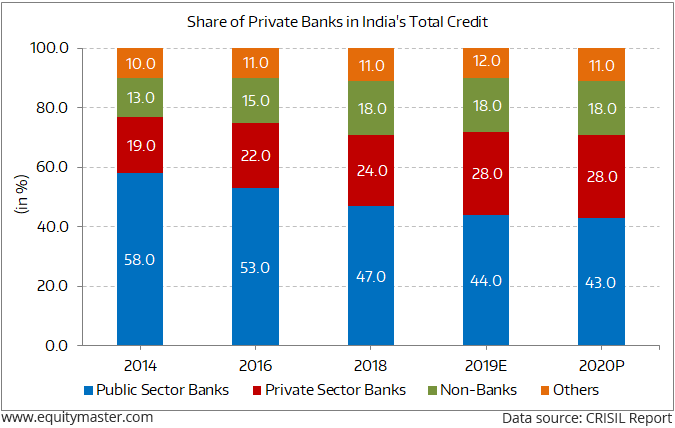India's Third Giant Leap
This Could be One of the Biggest Opportunities for Investors
- Home
- Todays Market
- Indian Stock Market News September 4, 2019
Indian Indices Open on a Flat Note; Sun Pharma Slips 4% Wed, 4 Sep 09:30 am
Asian share markets are lower today after poor US economic data stoked global recession fears and further soured investor sentiment already hurt by heightened trade war concerns.
Back home, India share markets have opened the day on a negative note. The BSE Sensex is trading down by 46 points while the NSE Nifty is trading down by 11 points. The BSE Mid Cap index has opened the day down by 0.6%, while the BSE Small Cap index is trading lower by 0.3%.
Barring telecom sector and IT sector, all sectoral indices have opened the day on a negative note with realty stocks and energy stocks witnessing maximum selling pressure.
The rupee is trading at Rs 72.27 against the US$.
In news from the pharma sector, the markets regulator has ordered a forensic audit against India's largest drug maker Sun Pharma to look into allegations of financial irregularities and lapses in corporate governance standards.
Earlier, a report said the regulator's inquiry had cleared Sun Pharma of any wrongdoing, after finding no merit in the whistleblower's allegations.
In February, Sun Pharma told stock exchanges that it had received two queries from markets regulator related to a 2004 foreign currency convertible bonds (FCCB) issuance and about Sun's business with Aditya Medisales (AML), and it had responded to both of them.
Media reports then said that the queries were a result of the anonymous whistle-blower complaint, which had questioned transactions amounting to over Rs 58 billion between AML and Suraksha Realty from money generated by the publicly-listed company.
Sun Pharma share price has opened the day down by 4.1%.
To know more about the company, you can read Sun Pharma's latest result analysis and Sun Pharma's 2018-19 annual report analysis on our website.
Moving on to news from the banking sector, IDBI Bank is set to get a one-time capital infusion of Rs 93 billion from its promoters - the central government and Life Insurance Corporation (LIC). Union minister Prakash Javadekar announced the decision taken by the Cabinet on Tuesday.
Of the Rs 93 billion, LIC will contribute 51% and the remaining 49% funds will come from the government as its share on a one-time basis. The government's capital infusion will come in the form of recapitalisation bonds.
Note that this is the first time the government has decided to pump money in IDBI Bank after LIC acquired a majority stake of 51% in the bank. The government holds around 46.5% stake in the lender.
As per an article in a leading financial daily, the government decided to jointly infuse capital into IDBI Bank since LIC alone couldn't have done it due to regulatory issues.
The insurance regulator permits insurers to hold only up to 15% in any listed entity. The Insurance Regulatory and Development Authority of India (Irdai) had given an exemption to LIC for hiking its stake from 8% to 51% in the lender last year.
A financial ministry official said IDBI bank's turnaround plan had envisaged the bank to clock net profit in the third quarter of this financial year and reduce its non-performing assets (NPAs) below 6% by the end of second quarter this financial year.
The press statement issued by the finance ministry said IDBI Bank is expected to gain Rs 5 billion in 2019-20 and Rs 10 billion in 2020-21 due to business synergies with LIC. The bank has collected Rs 2.5 billion as premium from sale of insurance in the first four-and-a-half months of this financial year.
Note that IDBI Bank is under the Reserve Bank of India's (RBI's) prompt corrective action (PCA) framework, which puts certain restrictions on the expansion of lenders due to its ailing health.
The bank's finances have continued to show signs of deterioration even after LIC's acquisition. The bank posted its 11th consecutive quarterly loss of Rs 38 billion in Q1FY20 compared to Rs 24.1 billion in the year-ago period, mainly on account of higher provisioning towards bad loans.
IDBI Bank share price has opened the day down by 2.6%.
Speaking of the banking sector, it is interesting to note that public sector banks (PSBs) have struggled due to rising NPAs.
NBFCs have struggled after the IL&FS crisis and are wary to lend.
There has been a silver lining in this mess. i.e. the increased market share of private sector banks. This is evident in the chart below:
India's Credit Shift Megatrend
Since 2014, private banks have consistently gained market share mainly at the expense of PSU banks.
With PSU banks still struggling to get out of their NPA mess, this trend is set to continue.
One such good quality private bank makes it to Tanushree's top 7 stocks to buy list.
These 7 stocks will be a part of many such megatrends that will play out over the next decade in India.
To know what's moving the Indian stock markets today, check out the most recent share market updates here.
For information on how to pick stocks that have the potential to deliver big returns, download our special report now!
Read the latest Market Commentary



Equitymaster requests your view! Post a comment on "Indian Indices Open on a Flat Note; Sun Pharma Slips 4%". Click here!
Comments are moderated by Equitymaster, in accordance with the Terms of Use, and may not appear
on this article until they have been reviewed and deemed appropriate for posting.
In the meantime, you may want to share this article with your friends!